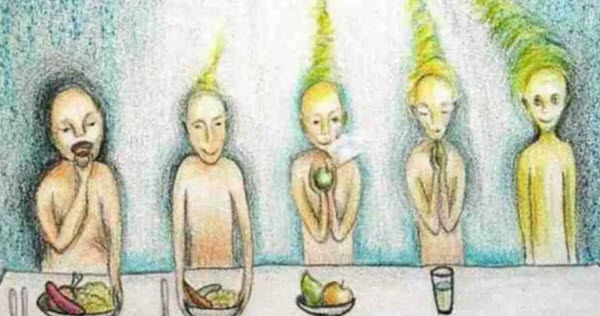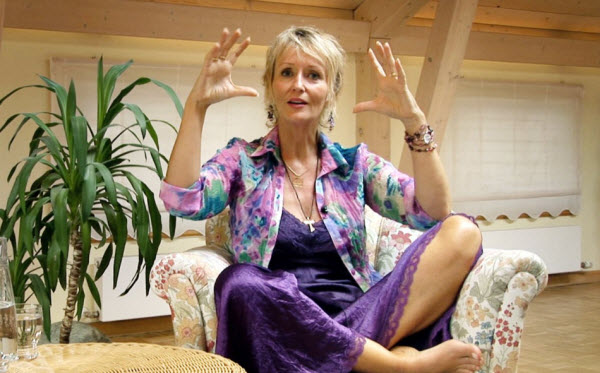In life, certain truths seem unavoidable and undeniable, with the need for food and water being fundamental for survival. While this is a universally accepted fact, there exists a group known as Breatharians who challenge this notion. Breatharians believe that one can thrive without these essentials and assert that extreme fasting can lead to a higher state of spiritual purity, with sustenance coming solely from air and sunlight. This idea is firmly rejected by medical professionals and scientists who view such practices as harmful to health.
Despite fasting being a common practice in various religions like Islam, Christianity, and Judaism, Breatharian fasting is considered extreme. Followers of this belief system argue that it taps into a mystical energy called “Prana” from Hinduism, which means “life air” or “life force.” They believe that Prana pervades the universe and flows through all living and non-living things. It is used in traditional practices like yoga, Indian medicine, and martial arts. For Breatharians, Prana is seen as a source of nourishment that could lead to a healthier, happier, and more vibrant life, and even solve world hunger. Newcomers to Breatharianism start by becoming vegetarians, avoiding cooked or processed foods, and transitioning to a diet of fruits and liquids, gradually reducing their intake. Eventually, they aim to survive solely on sunlight and air.
To join this group, beginners first adopt a vegetarian diet, avoiding cooked or processed foods. They then move to a fruit and liquid-based diet, progressively reducing their intake. Once they are consuming only fruits, they begin increasingly prolonged fasting periods, aiming to go as long as possible without food or fluids. They then stop consuming fruits and diluted juices and replace them with “sun-gazing,” where they stare at the sun for extended periods, believing it provides them with Prana. According to Breatharians, the eyes are the best organs for absorbing this energy. With dedication over years, they claim that it is possible to reach a stage where one can obtain complete nourishment from Prana alone. They cite several examples of individuals who have supposedly achieved this state.

Notable figures among Breatharians include the Indian monk Prahlad Jani, who claims to have lived without food or water for 70 years. Medical experiments monitored him around the clock, and while there were suspicions he might have used tricks to obtain sustenance, it was confirmed he could live at least two weeks without food or water. Another prominent Breatharian, Ray Maor, appeared on a talk show and demonstrated that he could survive for eight days without food or water, which amazed the show’s audience. Ellen Greve, also known as Jasmuheen, based in Australia, claims she can live without food and drink for months and has written several books on the topic, including the bestselling “Living on Light.” Similarly, Wiley Brooks, founder of the Breatharian Institute in the U.S., asserts that he can use air and sunlight as sole food sources indefinitely. There is also the couple Akahi Ricardo and Camila Castillo, who claimed to live a food-free lifestyle for nine years, with the wife eating only five times during her pregnancy, believing her child would receive sufficient nourishment through her love.

However, science does not support Breatharian claims. Without food or water, the human body begins to deteriorate: blood thickens, kidneys fail, and the body starts consuming its own glycogen, fat, and muscle reserves to survive. This leads to multiple organ failure, severe health problems, coma, and eventually death. Medical experts state that humans can survive for about 7 to 10 days without water, depending on climate and conditions, and up to 21 days without food under ideal circumstances before facing severe health issues. They also note that even plants cannot survive on sunlight alone, as they require nutrients from soil and water. No known life form on Earth can live solely on air and sunlight, a scientific fact beyond dispute.

Given the scientific evidence of the body’s response to such extreme practices, one might wonder how Breatharians manage. The short answer is that many do not deceive or exaggerate but may consume some liquids and food occasionally. Those who claim extraordinary abilities are often under suspicion, especially after Breatharian leader Jasmuheen was caught with a full stock of food, despite claiming it was for her husband. During controlled tests, she failed to pass, citing inability to absorb what she needed from the air. Similarly, Wiley Brooks was observed eating regular meals at restaurants. There is compelling evidence against Breatharianism from documented cases of individuals who have suffered life-threatening conditions or even death due to strict adherence to its principles.
It is puzzling why such beliefs persist despite clear evidence that they contradict fundamental biological and medical principles. While this lifestyle might aid weight loss to some extent, it inevitably leads to death if continued beyond a certain point. Fortunately, the number of Breatharians remains very low, highlighting our constant need for food and water to sustain life.
